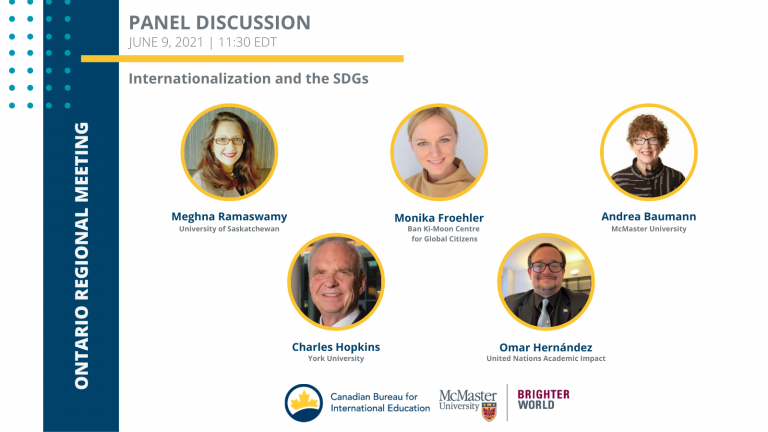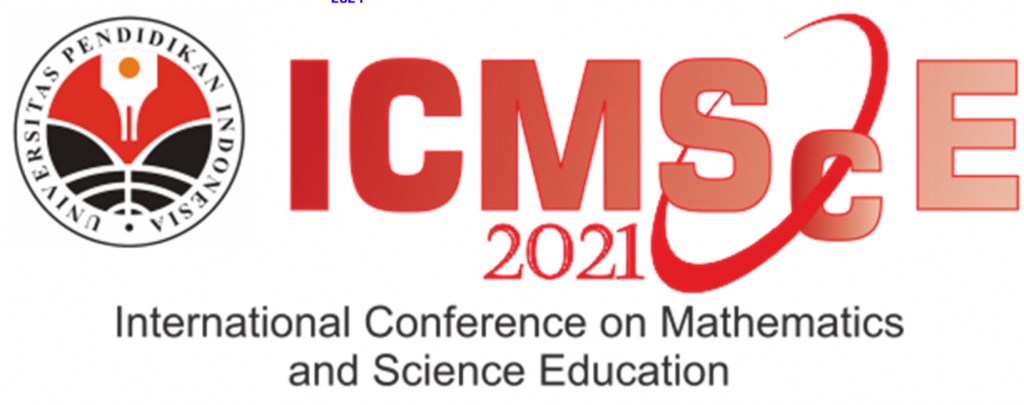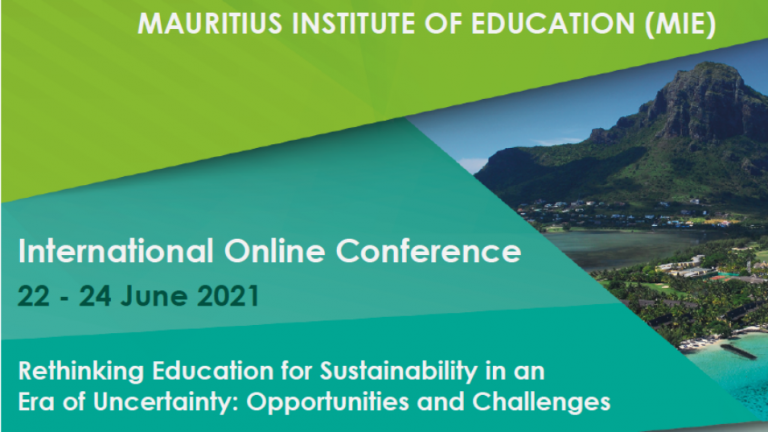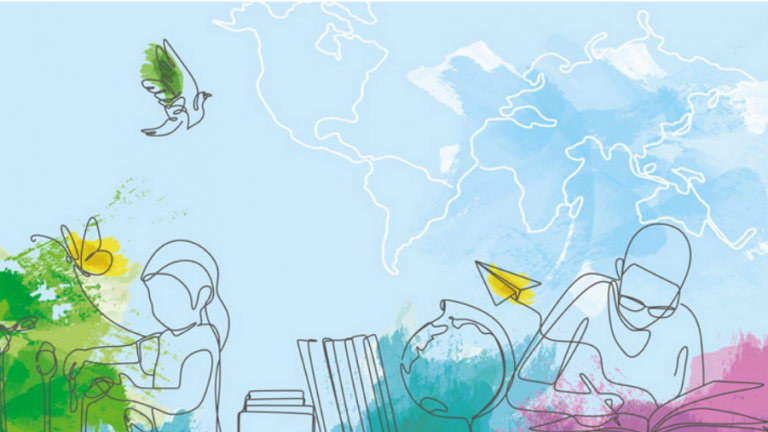Dear Colleagues, Network Partners, and Friends,
We sincerely hope that you are happy and healthy as you read this message. Thank you for staying connected through these prolonged times of virtual interaction and working from home.
In recent days, Canada has been shaken by a gruesome discovery. On the grounds of the former Kamloops Indian Residential School, located on the Tk’emlúps te Secwépemc First Nation in British Colombia, the remains of 215 children were found. It is a tragic certainty of what was long expected and a painful reminder of Canada’s failure to respect Indigenous communities, their land, and their heritage. We mourn the loss of children who never returned and offer our condolences to the families and their communities.
Usually in June, we celebrate National Indigenous History Month to honour the history, heritage and diversity of First Nations, Inuit and Métis peoples in Canada with the 21st of the month being the National Indigenous Peoples Day. This year, we would like to emphasize the importance of education in building understanding, supporting the efforts necessary in reconciliation and the importance of access to quality education for all, including all vulnerable groups, to create equitable ways of participating in society while preserving heritage, language and traditions. The 2019 #IndigenousESD research questioned different perceptions regarding the outcomes of quality education among students, teachers, community members, ministry officials etc. in 29 countries, informing the discussion on SDG 4 targets 5 and 7. Click here to learn more.
The last year has been a challenging time for most of us during the pandemic but there is light on the horizon with vaccines arriving in many countries and overall case numbers decreasing. While we are grateful for these developments, we are very aware of the existing global inequalities in access to the lifesaving immunization. Moreover, even when access can be secured, misleading information might lead to vaccine hesitancy. While education cannot solve all of the world´s problems, there is a role for education in teaching about the virus, immunization efforts, and an opportunity to build back better. Many of our events this month will focus on the short-term and mid-term futures of education in order to recover from the pandemic.
Please join us for the events to come in the next weeks and feel free to share this newsletter with your networks. Please be well, we will stay in touch.
Best wishes from Toronto,
Charles Hopkins
UNESCO Chair in Reorienting Education towards Sustainability
York University
Education is one of the crucial keys towards a better future. In sharing knowledge and empowering learners, access to education can ultimately transform lives. To date, not everyone has access to education, let alone to a quality education in light of SDG 4 that enables learners to make informed decisions, take responsible action towards a sustainable future and respect cultural diversity. The pandemic has laid bare the insufficiencies and inequalities in our education systems. But there is opportunity to build back better and reimagine a new era for learning and pedagogy.
The Times Higher Education University Impact Forum on Quality Education will explore how universities, can shift their focus to building a more inclusive, equitable education for all. In a keynote, York University´s UNESCO Chairholder Charles Hopkins will address new perceptions of what constitutes quality in education, the potential role of higher education in a resilient recovery and exploring new emerging purposes of education itself. Register for free and join the discussion.
The 2021 Canadian Bureau for International Education (CBIE) Ontario Regional Meeting will focus on the future of internationalization and global engagement in Ontario and across Canada in light of COVID-19. Register for the conference from 7-11 June 2021.
If you are interested in a panel discussion on Internationalization and the SDGs, join York University´s UNESCO Chairholder Charles Hopkins and other distinguished panelists next week on 9 June 2021. The SDGs call for action to end poverty, protect the planet and ensure that all people enjoy peace and prosperity by 2030. Higher education is explicitly mentioned and has a responsibility to transform the SDGs into into measurable, sustainable impacts and to transform themselves into institutions that model sustainability in their own teaching and practices. How can we embed the SDGs into internationalization in higher education?
In January 2021, York University, in partnership with the International Association of Universities, the Canadian Commission for UNESCO, and Okayama University Japan, hosted the Sustainable and Inclusive Internationalization Virtual Conference and more than 500 participants from 58 countries adopted the 2021 Toronto Declaration on the Future of Sustainable and Inclusive Internationalization in Higher Education. Share your commitment for internationalization and sign the 2021 Toronto Declaration. You can also watch the recordings of all sessions on the post-conference website.
The School of Postgraduate Studies at the Universitas Pendidikan Indonesia (UPI) will host this International Conference on Mathematics and Science education (ICMScE) on 12 June 2021. The keynotes and panels will focus on STEM disciplines and their potential to contribute to a society 5.0 in science education. Charles Hopkins will explore the connections between the concept of STREAM (science, robotics, engineering, arts, mathematics) for a sustainable future in his keynote. Registration for the conference is now open.
The Environmental Education Association of Southern Africa (EEASA) conference, hosted online by the Mauritius Institute of Education (MIE), will provide a unique platform for educators, academia, researchers, policy makers and other relevant stakeholders to share, critically reflect and build upon their experiences of educating in environmental sustainability and make recommendations for the future. The world is currently facing unprecedented changes which are impacting all living organisms, including human beings. This conference seeks to elicit engaged dialogue with a focus on environmental issues.
Charles Hopkins will hold a keynote on 24 June 2021. Several other high-level speakers, e. g. IAU SDG 4 Cluster partner and INTEI member Heila Lotz-Sisitka from Rhodes University and our INTEI partner ESD Innovate expert Shepherd Urenje from SWEDESD will also speak during the event. Registration is now open. Follow the event on Facebook.
On 19 May 2021, with the adoption of the Berlin Declaration for Sustainable Development (ESD), more than 2,800 participants from 161 countries at the UNESCO World Conference on ESD, with 10,000 viewers online, committed to promoting ESD as a guiding principle at all levels of education and for lifelong learning. A report launched at the event, titled Learn for our Planet, focuses on the extent to which environmental themes are embedded in education. The findings underline the potential of ESD being a key enabler of the significant transformation needed in creating a more sustainable future for all. The conference, followed by regional technical meetings, kicked off the activities towards the new UNESCO ESD for 2030 program. York University´s UNESCO Chair will contribute, in partnership with its global networks, by designing and implementing research to add science-based knowledge to the discussion. We will soon reach out to network partners in more than 50 countries to define our particular research approaches to support the ESD for 2030 Roadmap and make optimal use of the toolbox provided by UNESCO. Join the discussion on social media and share your views using #LearnForOurPlanet and #ESDfor2030.
On 22-23 July 2021, the Tarlac Agricultural University (TAU) will host the 1st Agriculture, Biosystems and Technology Conference (1st ABT Conference) ‘Scaling Up Innovative Solutions for Sustainable and Climate-Smart Agricultural Transformation’, which will gather researchers, young scientists, academics, and other stakeholders to showcase their latest research and best concepts on the leading-edge agricultural innovations as an adaptive response and mechanism for the agricultural transformation.
A call for papers with a submission deadline on or before 15 June 2021 invited interested researchers and practitioners to share their insight. Best Paper & Best Poster Awards as well as the Best Young Scientist Award will recognize outstanding achievements. Registration is now open. For questions, please contact Maria Elena Caguioa/Carlo Magno Sagun at cmsagun(at)tau.edu.ph.
Join the IAU Webinar Series on the Future of Higher Education: short, medium and long-term perspectives – an excellent opportunity for higher education leaders and professionals to engage with peers and experts. The next webinar will be co-hosted by the International Association of Universities (IAU) and UNICA Network and will take place on 8 June 2021. The dialogue will focus on the crucial role of academic leadership and middle management in mainstreaming sustainable development.
This flipbook introduces you to the broad variety of activities that the new Regional Centre of Expertise on ESD, RCE Gombak (2020), has implemented since its inception in transforming their community through a whole-institution approach, following a vision of sustainability, spirituality and humanity.
The RCE Gombak is one out of 179 members of the Global RCE Network, coordinated by the United Nations University´s Institute for the Advanced Study of Sustainability.
This publication is a collection of essays on the emergence of living schools written by educators and experts on sustainability education, sustainable happiness, and living schools, carefully curated by INTEI members Catherine O’Brien and Patrick Howard, both associate professors in education at Cape Breton University. Living schools are places where people are flourishing, where staff and students are on a co-learning journey, and there is explicit awareness that schools are interconnected with local and global communities, including the natural world.
Thanks to Youth Climate Report Director and Chair Associate Mark Terry for supporting us in developing a map that highlights our partner network in 50+ countries, engaged in promoting sustainability as a purpose of education. These longstanding and trusted relationships are at the core of our efforts towards achieving the SDGs and the Global 2030 Education Agenda. We invite our partners from the International Network of Teacher Education Institutions (INTEI), the #IndigenousESD research network, and the SDG 4 IAU-HESD Cluster to help us in bringing this map to life in sharing contact information, video and photo links. If you have any questions or suggestions, please reach out to unescochair(at)edu.yorku.ca.
Missed an event or would like to watch a certain lecture again? No problem. Check out our new channel on YouTube. You can find introductions to our work, specific lectures on Education for Sustainable Development (ESD), and the recordings of most virtual events. The latest additions are the virtual dialogue on transforming education in the 21st century in partnership with the Ban Ki-Moon Centre for Global Citizens, hosted by the Austrian Cultural Forum Ottawa, as well as the live session of UNESCO Chairs during the UNESCO World Conference on ESD in May 2021.












